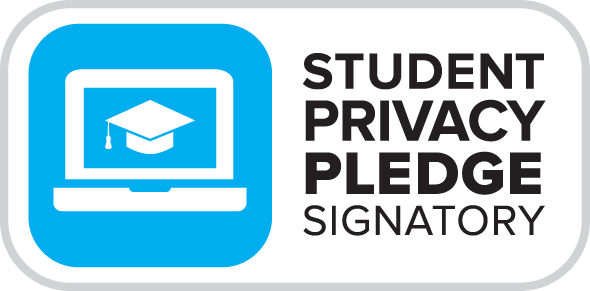Curriculum
Description and Scope of Emotional ABCs Classroom
Year 1 Curriculum (Workshops Basics)
UNIT A: AN INTRODUCTION TO EMOTIONS
SOCIAL EMOTIONAL LEARNING CATEGORY
SELF-AWARENESS, SOCIAL AWARENESS, RELATIONSHIP SKILLS
DESCRIPTION
Workshops 1-8 introduce emotional skills. Children will learn how to define an emotion (Workshop 1), observe their own, and other's emotional responses (Workshops 2, 3), develop an expanded emotional vocabulary within a context (Workshops 4, 5, 6), observe that emotions can be complex and change easily (Workshop 7), and as a summary, use their expanded emotional vocabulary to tell stories (Workshop 8).
GOALS
At the completion of Unit A, students should have:
- a substantial working emotional vocabulary of at least 20 emotion words
- a more fully developed ability to express their own emotions
- an ability to communicate subtle emotional differences using synonyms
- an awareness of their own emotional responses to events
- an awareness that other people have their own unique and valid emotional responses that may be different from their own, to the same event
UNIT B: SKILLS TO INCREASE EMOTIONAL UNDERSTANDING
SOCIAL EMOTIONAL LEARNING CATEGORY
SELF-AWARENESS, SOCIAL AWARENESS
DESCRIPTION
Workshops 9 - 12 bring attention to non-verbal clues to help students interpret their own and others’ emotions. In this Unit, children consciously focus on face and body visual clues (Workshop 9), develop a method of breathing that helps them self-evaluate their emotional state (Workshop 10), become aware of sensations, which are often a physical manifestation of emotional clues (Workshop 11), and learn how idioms can be used to express sensations (Workshop 12).
GOALS
At the completion of Unit B, students should be able to:
- consciously recognize face and body clues
- do mindful breathing exercises to help self-regulate and self-evaluate emotional states
- be conscious of, and recognize personal physical sensations that might be clues to their emotional state
- use an expanded emotional vocabulary that includes a dozen sensations words
- begin developing an ability to infer the emotional content of idioms that people use to express their feelings
UNIT C: SELF MANAGEMENT OF EMOTIONS
SOCIAL EMOTIONAL LEARNING CATEGORY
SELF-MANAGEMENT, SOCIAL AWARENESS, RELATIONSHIP SKILLS
DESCRIPTION
Workshops 13 – 15 teach techniques to manage emotions. This Unit introduces students to the Emotional ABCs Toolbar, a mental ‘short-hand’ to help remember three essential emotional skills and to use them in the proper sequence. These skills are:
- Keeping emotions from escalating into difficult-to-manage intensity levels (Pause & Breathe)
- Thinking back through an emotionally intense situation (as dispassionately as possible) to more clearly understand what launched the emotional response (Rewind)
- Choosing a course of action that most appropriately addresses the needs of the student (and others) in the specific situation (Play)
In this Unit, students are introduced to the Emotional ABCs Toolbar and learn how to use it (Workshop 13), learn how, why, and when impulsive reactions to emotional situations occur (Workshop 14), and observe the benefits of using the Emotional ABCs Toolbar technique to make thoughtful choices (Workshop 15).
GOALS
At the completion of Unit C, students should have skills to:
- consciously recognize face and body clues
- recognize when their emotions are getting ‘too big,’ which should then trigger a student to Pause and Breathe
- know the difference between a reaction and choice of action
- label and use all steps of the Emotional ABCs Toolbar
UNIT D: RESPONSIBLE DECISION-MAKING
SOCIAL EMOTIONAL LEARNING CATEGORY
RESPONSIBLE DECISION-MAKING, SELF AWARENESS, SOCIAL AWARENESS
DESCRIPTION
Workshops 16 – 19 reiterate how to use the Emotional ABCs Toolbar, present several choices of action that can help manage intense emotions, and create opportunities for students to practice responsible decision-making skills.
In this Unit, students review the Emotional ABCs Toolbar and learn The Talk Play - a choice to ‘use your words’ (Workshop 16); they observe the Toolbar being used with other intense emotions and learn The Fix-It Play – a choice to fix a problem yourself (Workshop 17); students learn additional Plays in the Emotional ABCs Playbook, which contains 10 ‘Plays’ that can help students quickly make good choices of action (Workshop 18). Teachers can create more Workshops to teach and practice good choices of action by using Workshop 18 and 19 as templates.
GOALS
At the completion of Unit D, students should:
- be able to use The Emotional ABCs Toolbar (and all skills learned throughout all Units) to help manage emotions and make good choices
- be familiar with several ‘Plays’ – i.e., good choices of action
- have practiced using their decision-making skills in hypothetical situations
SUMMARY
DESCRIPTION
Workshop 20 celebrates the knowledge and skills learned throughout the curriculum. Each student’s Self-Reflection pages from the Workshops are combined with additional support pages to create individualized, take-home reference books. Support pages can include printables, vocabulary, Moody Cards, The Playbook, etc. All of these materials are available within EmotionalABCs.com.
Year 2 Curriculum (Premium Workshops+)
UNIT A: Review and Expansion
SOCIAL EMOTIONAL LEARNING CATEGORY
SELF-AWARENESS, SOCIAL AWARENESS, SELF-MANAGEMENT, RESPONSIBLE DECISION-MAKING, RELATIONSHIP SKILLS
DESCRIPTION
Unit A reviews and expands emotional skills learned in the Year 1 curriculum. Educators begin by assessing students’ retention of an emotional vocabulary and knowledge of self-management skills. Students review the Self-Management skills of the Emotional ABCs Toolbar (Workshop 1), revisit concepts regarding the nature of emotions (Workshop 2), and verify understanding of an expanded emotional vocabulary (Workshops 3, 4). All Workshops build teamwork, leadership, and relationship skills through small group activities with designated responsibilities for team members and rotating leadership positions.
GOALS
After the completion of Unit A, students should:
- have retained a substantial working emotional vocabulary of at least 20 emotion words
- be able to communicate subtle emotional differences using synonyms
- have an awareness of their own emotional responses to events
- have a growing understanding that other people have their own unique and valid emotional responses that may be different from their own, even to the same event
- be able to use the Emotional ABCs Toolbar to effectively manage emotions and make responsible decisions
UNIT B: Transformative Self Awareness
SOCIAL EMOTIONAL LEARNING CATEGORY
SELF-AWARENESS, SELF-MANAGEMENT, RESPONSIBLE DECISION-MAKING, RELATIONSHIP SKILLS
DESCRIPTION
Unit B focuses on transformative self-awareness: inspiring students to begin to independently shape their own identities and envision their most powerful selves by learning skills that help create and maintain optimal mental, emotional, and physical environments. Students revisit physical sensations and become aware in more detail of the impact of emotions on the mind and body (Workshops 5, 6). They are encouraged to increase their personal awareness of and responsibility for their own self-care (Workshop 7) and learn ways to shape their exterior learning and living environment (Workshop 8). Finally, students create an imaginary mental and emotional Empowered Place that serves as an emotional safe harbor and inspiration (Workshop 9).
GOALS
After the completion of Unit B, students should:
- know how to do mindful breathing and self-assessment exercises to self-evaluate emotional states
- be conscious of, and recognize personal physical sensations that might be clues to their emotional state
- begin to proactively make independent choices for self-care (Expansion of the Pit Stop Play)
- be more aware of their external environment and able to make even incremental changes to help support their most productive selves
- build a flexible and changeable mental blueprint of their most productive and calm state of mind
- begin to identify personal goals and understand the value of making plans to achieve those goals
UNIT C: Beyond Self-Management: Shaping Your Relationships
SOCIAL EMOTIONAL LEARNING CATEGORY
SELF-AWARENESS, SOCIAL AWARENESS, SELF-MANAGEMENT, RESPONSIBLE DECISION-MAKING, RELATIONSHIP SKILLS
DESCRIPTION
Unit C expands the use of Self-Management skills to emphasize forward-thinking and relationship-oriented considerations while making choices. Students review Self-Management skills and observe the social consequences of unthoughtful reactions (Workshop 10). Persistence and Empathy skills are introduced that can lead to stronger relationships and more opportunities for personal success (Workshops 11, 12), and students learn new perspective-taking tools to develop awareness of other personalities and cultures (Workshop 13).
GOALS
After the completion of Unit C, students should:
- recognize the moment, when in emotional situations, to Pause & Breathe to self-manage emotions
- have tools available that encourage persistence with difficult tasks (Expansion of the Try Again Play)
- know how to try to cognitively transfer a personal understanding of emotions into relating to the emotions of others (The Kindness Play)
- understand that anyone can inadvertently be a bully (micro-aggressions)
- recognize clues from others that you need to clarify your actions or words, i.e., more fully understand how your behavior may affect those around you.
UNIT D: Shaping Your Neighborhood
SOCIAL EMOTIONAL LEARNING CATEGORY
SOCIAL AWARENESS, SELF-MANAGEMENT, RESPONSIBLE DECISION-MAKING, RELATIONSHIP SKILLS
DESCRIPTION
Unit D creates hypothetical opportunities for students to practice newly acquired social emotional skills and see the transformative impact that thoughtful decisions and actions can have on their life and neighborhood (Workshops 14, 15). In summary, students recognize their own power to shape their identities and communities. Skills of self-management, imagination, persistence and sensitivity to others are practiced by students.
GOALS
After the completion of Unit D, students should:
- be able to use The Emotional ABCs Toolbar (and all skills learned throughout all Units) to help manage emotions and make good choices
- be fluent with the Emotional ABCs Plays so they can quickly consider good choices of action when needed
- have practiced using their decision-making skills in hypothetical situations
- try to think proactively, making decisions not only in response to events but to create a positive impact on themselves and others
- recognize that they have the personal power to shape themselves and their communities.
Year 3 Curriculum (Premium Workshops+)
UNIT A: REVIEW OF SOCIAL EMOTIONAL SKILLS
SOCIAL EMOTIONAL LEARNING CATEGORY
SELF-AWARENESS, SOCIAL AWARENESS
DESCRIPTION
Unit A, Workshop 1, helps teachers evaluate students’ retention of social emotional skills from the Years 1 and 2 curriculums. Before continuing further into the 3rd year curriculum, students should be able to demonstrate an understanding of their body’s sensations and how sensations connect to their own emotions, be able to express themselves using an expanded emotional vocabulary, and understand how to use the Emotional ABCs Plays in emotionally charged situations. Students should show the ability to imagine the impact of different emotions on their own and others’ physical and mental states.
Workshops that can help review these concepts include:
Vocabulary: Year 2, Workshops 3, 4
Sensations: Year 2, Workshops 5, 6
Emotional ABCs Plays: Year 2, Workshop 10, 11, 12
Empathy: Year 2, Workshops 13, 14
GOALS
After the completion of Unit A, students should:
- be able to internalize a Sensation Scan and recognize their own emotions and sensations
- use and understand at least 20 emotional vocabulary words to describe emotional states
- understand when and how to use five of the Emotional ABCs Plays, including the Talk Play, Try Again Play, Substitute Play, Wait & See Play, and Pit Stop Play
- be able to recognize emotional clues from others’ face and body language and imagine how different emotions might affect themselves and others
UNIT B: DEVELOPING PROBLEM-SOLVING SKILLS
SOCIAL EMOTIONAL LEARNING CATEGORY
SELF-AWARENESS, SELF-MANAGEMENT, RESPONSIBLE DECISION-MAKING
DESCRIPTION
Unit B expands on problem-solving skills first introduced in Year 2, Workshops 11 and 12. The ability to set and achieve personal goals and also contribute to a community helps develop a sense of self-worth and a healthy emotional foundation. Knowing how to face inevitable setbacks and reframe perceived failures gives students room for a positive and hopeful growth mindset. Students learn to recognize when a situation is “not right” for them and therefore needs to be adapted or changed (Workshop 2), they become aware of the value of role models to help with persistence and motivation (Workshop 3), and they develop skills to reframe a perceived failure as a way to move forward (Workshop 4).
GOALS
After the completion of Unit B, students should:
- be able to recognize when they are in a non-supportive situation and take the initiative in an attempt to change it
- be able to define the term, initiative
- be able to define the term, persistence
- actively search out role models as examples for motivation and problem-solving ideas
- understand that not reaching one’s goals (perceived failure) is an opportunity to reframe, adjust, and try again
- be familiar with the Emotional ABCs Reframe Play and Try Again Play
UNIT C: THE POWER OF THE STORY - EMPATHY, KINDNESS, AND CAREFUL LISTENING
SOCIAL EMOTIONAL LEARNING CATEGORY
SOCIAL AWARENESS, RESPONSIBLE DECISION-MAKING, RELATIONSHIP SKILLS
DESCRIPTION
Unit C reviews the Social Toolbar and emphasizes the traits of active listening, empathy, kindness, and healthy relationship skills. After understanding the importance of listening to someone else’s story and reviewing the Story Play (Workshop 5), students review the components of the Social Toolbar (Workshop 6), and work to develop flexible, in-the-moment ways to better approach social situations. If needed, additional work with the Social Toolbar, empathy, and relationship skills can be reviewed using Year 2, Workshops 13 and 14.
GOALS
After the completion of Unit C, students should:
- be stronger at recognizing emotional clues of the self and others as a way to create and build healthier relationships
- recognize the importance of careful listening to others as a way to strengthen friendships and also show empathy and respect for the experiences of others
- recognize the power of telling one’s own story
- be familiar with the Emotional ABCs Story Play
- be proficient at using the components of the Social Toolbar (Observe, Ask, Listen & Adjust)
- be able to access a repertoire of good choices of action during fluid, changing social interactions
UNIT D: INCLUSIVITY AND COOPERATION
SOCIAL EMOTIONAL LEARNING CATEGORY
SOCIAL AWARENESS, RESPONSIBLE DECISION-MAKING, RELATIONSHIP SKILLS
DESCRIPTION
Unit D introduces skills to create a more inclusive and cooperative environment. During the three years of the Emotional ABCs curriculum, students have developed foundational social and emotional skills. The previously learned skills can now support more complex social decision-making tasks such as noticing if someone is being excluded, making an effort to build an inclusive community (Workshop 7), and learning how to work in groups for a common goal (Workshop 8).
GOALS
After the completion of Unit D, students should:
- be able to recognize if someone is being excluded from a social group.
- know how to use the Emotional ABCs Plays and Social Toolbar skills to establish an inclusive social atmosphere.
- understand the adverse effects on individuals and communities caused by exclusion
- understand the benefits of an inclusive and accepting community, establishing inclusion as a social norm
- use the Social Toolbar skills to cooperate with others to achieve common goals.
- be fluent in the foundational social and emotional skills presented during Emotional ABCs’ three years of Workshop curriculums





